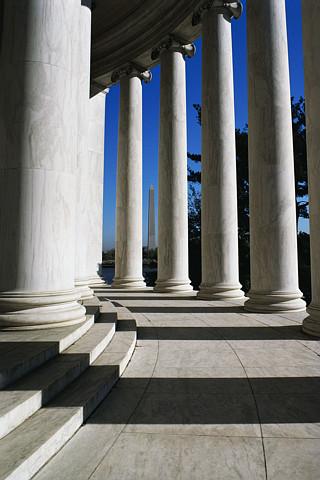NIW Supporting Evidence





Documentation of past accomplishments plays the most significant role in the decision of U.S. Citizenship and Immigration Services (USCIS) to grant a National Interest Waiver (NIW). Past accomplishments, however, must fulfill the three-prong Dhanasar test. This includes evidence that:
-
The foreign national’s proposed endeavor has both substantial merit and national importance.
-
The foreign national is well-positioned to advance the proposed endeavor.
-
On balance, it would be beneficial to the U.S. to waive the requirements of a job offer and labor certification.
Ultimately, the applicant must show how he or she will serve U.S. national interests to a substantially greater degree than could a U.S. worker with the same qualifications.
The most important components that should be included in supporting documentation are:
- Letters of recommendation from experts in the field. Experts may include:
-
Editors of journals in which the petitioner has published;
-
Researchers citing the petitioner’s work;
-
Researchers who commercialized the petitioner’s research;
-
Researchers who work for the government or for any other recognized agency; and/or
- Advisors of the petitioner’s research.
- Tangible evidence of the petitioner’s valuable contributions. For instance, the petitioner could provide documentation showing his or her successful track record in a specific project in the field, along with descriptions of the crucial role he or she played in the project’s execution and success. The more consistent the track record is, and the more important and recognized the job position or project is, the more weight USCIS will give the evidence. Examples of tangible evidence include:
-
Number and rankings of publications that the applicant authored or coauthored
-
Number of citations for papers that the applicant authored or coauthored. This information may be obtained through Google Scholar or Web of Science
- Independent citations are given considerably more weight than are self-citations because the latter cannot clearly show that the petitioner has influenced the field as a whole or that the petitioner’s work is distinguished from that of other researchers. Independent citations demonstrate the response of other researchers in the field, and thus the impact of the petitioner’s work.
-
Proof that the petitioner has already turned around a business, improved the economy, etc.
-
Requests for reprints or further information about the petitioner’s research in the field
-
Acknowledgment or invitation letters from recognized journals or organizations
-
Copies of awards, honors, certificates, or other mementos of recognition for excellence in the field, with documentation of the selection criteria involved
-
Membership in associations that demonstrate a requirement of outstanding achievement for members, as judged by recognized experts in the field
-
Membership on a panel that judges the work of others in the field
-
Copies of media reports about the petitioner and his or her work
-
Major, internationally recognized achievements and awards in the field (e.g. a Nobel Prize)
-
If in the performing arts, evidence of commercial success through box office receipts, sales, records, etc.
-
High number of online downloads of the applicant’s publications, i.e. if the applicant’s work does not have many citations but has been downloaded with a high degree of frequency
-
Licensing or implementation of the applicant’s patent(s), if any
-
Any relevant comparable evidence
Note that not all of the evidence above is necessary, and no evidence by itself is conclusive. In general, the more evidence there is, the better. However, and unsurprisingly, it’s the quality of evidence that USCIS emphasizes, not just the quantity.
An important but often overlooked factor in the NIW petition is the organization of supporting evidence. A USCIS officer must go through hundreds of applications per year. A disorganized NIW application will only cause frustration and potentially even confuse the officer reviewing your case. At our firm, we recommend submitting a brief outline or table of the supporting documents in your NIW petition. This will make the application process, from our compiling your packet to the officer’s reviewing your application, much more efficient.
The NIW process is complex and, at times, a bit convoluted. We recommend that you seek the assistance of experienced immigration attorneys. Over the past two decades, we have successfully represented thousands of clients in their NIW cases. If you would like to contact us, please call us at (713) 771-8433 or visit us at one of our seven locations. You can also send us an e-mail at info@hooyou.com. Our superior attorneys will ensure that you receive only the highest quality of service.
Read the USCIS ruling (Matter of Dhanasar) governing NIW here. And for more detailed information about the National Interest Waiver, including minimum requirements and USCIS policies, please click on the relevant links on this page:
- National Interest Waiver (NIW)
- Quick Start Guide to the National Interest Waiver
- New NIW Standards: Dhanasar
- Dhanasar vs. NYSDOT
- Advanced Degree Professional vs. Exceptional Ability
- NIW Application Process
- NIW Supporting Evidence
- Letters of Recommendation
- NIW Documentation
- Meeting the “National Interest” Standard
- NIW Services We Provide
- Frequently Asked Questions about NIWs
- Recent USCIS Developments on NIW Adjudication
- Historical NIW Requirements and Case Analyses
- NIW Appeals and Motions
- Physician National Interest Waivers
- NIW Client Testimonials
- Attorney's Fees
- Articles & News on NIW
Updated 03/23/17




